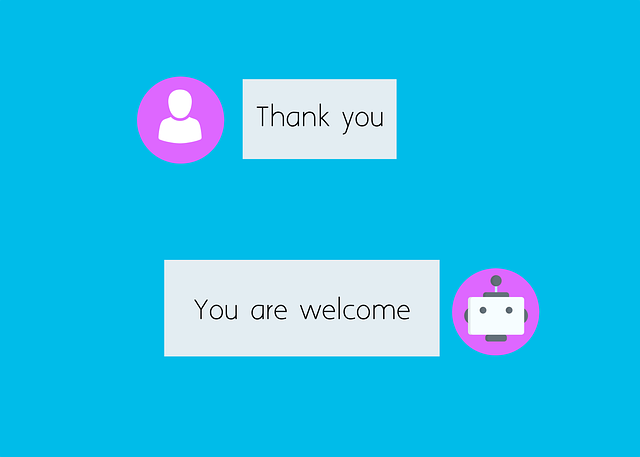AI chatbots, powered by advanced NLP and machine learning, are transforming live chat support with human-like interactions. They leverage pre-trained domain-specific models for contextually relevant answers, improving customer experiences and reducing operational costs. These virtual assistants offer 24/7 availability, swift responses, and personalized engagement, enhancing brand connection and customer satisfaction. While challenges remain in understanding context and nuances, continuous improvements in NLP and machine learning are crucial. The future of customer service looks promising with AI chatbots increasingly mirroring human-like conversations, integrating emotional intelligence, and personalizing interactions based on customer data.
“In an era driven by digital innovation, chatbot AI is transforming customer support through live chat interactions. This article delves into the multifaceted world of artificial intelligence chatbots, exploring their underlying technology and how they enhance user experiences. We dissect the benefits of integrating chatbot AI into live chat environments, from improved efficiency to 24/7 availability. Furthermore, we address challenges and limitations, offering insights into overcoming obstacles. Finally, we peek into future trends, anticipating the evolution of chatbot AI in live chat.”
- Understanding AI Chatbots: The Technology Behind
- Live Chat Integration: Enhancing Customer Support
- Benefits of Using Chatbot AI in Live Chat Environments
- Challenges and Limitations: Overcoming Obstacles
- Future Trends: Evolution of Chatbot AI in Live Chat Interaction
Understanding AI Chatbots: The Technology Behind

AI chatbots, powered by advanced natural language processing (NLP) and machine learning algorithms, have revolutionized live chat support. These intelligent virtual assistants are designed to understand user queries, interpret intent, and generate human-like responses in real time. The technology behind chatbot AI involves complex neural networks that learn from vast datasets, enabling them to evolve and improve over time.
By leveraging pre-trained language models and fine-tuning them on specific domains or industries, chatbot ai can provide tailored and contextually relevant answers. This capability ensures that customer interactions are more efficient, personalized, and engaging. Moreover, AI chatbots can handle a high volume of concurrent conversations, making them an indispensable tool for businesses aiming to enhance their customer service while reducing operational costs.
Live Chat Integration: Enhancing Customer Support

Live chat integration powered by AI chatbots is transforming customer support, offering a swift and efficient way for businesses to engage with their customers in real-time. These chatbots utilize natural language processing (NLP) and machine learning algorithms to understand customer queries and provide immediate, personalized responses. By deploying live chat functionality, companies can significantly reduce response times, especially during peak hours, ensuring that no inquiry goes unanswered.
The integration enhances the overall customer experience by enabling 24/7 support, instant issue resolution, and the gathering of valuable customer feedback. AI chatbots can be programmed to handle a wide array of common queries, allowing human agents to focus on more complex matters. This efficient allocation of resources leads to improved agent productivity and satisfaction, as they can assist customers with a higher level of expertise when needed.
Benefits of Using Chatbot AI in Live Chat Environments

The integration of Chatbot AI into live chat environments offers a multitude of advantages for businesses and customers alike. One of the key benefits is the significant improvement in customer support efficiency. Chatbots can handle a large volume of basic customer inquiries simultaneously, reducing wait times and increasing response rates. This real-time assistance enhances user experience, especially during peak hours when human agents might be overstretched.
Moreover, AI chatbots provide 24/7 availability, ensuring that customers receive instant support regardless of the time zone or day of the week. Their ability to understand and interpret natural language, thanks to advanced Natural Language Processing (NLP), allows for more human-like conversations. This personalization fosters a stronger connection between the customer and the brand, leading to increased customer satisfaction and loyalty.
Challenges and Limitations: Overcoming Obstacles

Despite their growing popularity, AI chatbots and live chat systems come with certain challenges and limitations that must be acknowledged. One major hurdle is understanding context and nuances in human language, as chatbots often struggle with ambiguous or complex queries. This can lead to incorrect responses or frustrating user experiences. Additionally, maintaining a natural and engaging conversation flow remains an area of improvement, as current AI models sometimes produce stilted or repetitive dialogue.
Overcoming these obstacles requires continuous advancements in natural language processing (NLP) techniques and machine learning algorithms. Enhancing contextual understanding through vast data training and incorporating human feedback loops can improve chatbot accuracy and performance. Moreover, investing in diverse conversational design strategies ensures more dynamic and captivating interactions, fostering user satisfaction and loyalty.
Future Trends: Evolution of Chatbot AI in Live Chat Interaction

As we move forward, the evolution of chatbot AI in live chat interactions is set to redefine customer service experiences. Advanced natural language processing (NLP) and machine learning capabilities will enable chatbots to understand complex queries more accurately, leading to more human-like conversations. This transformation promises improved customer satisfaction as chatbots can handle a broader range of tasks, from simple inquiries to more intricate problem-solving.
The future trends also include the integration of emotional intelligence, allowing AI chatbots to recognize and respond appropriately to customer emotions. Personalization will be another key focus, with chatbots leveraging customer data to deliver tailored interactions. These innovations are set to enhance user engagement, making live chat interactions more efficient, effective, and enjoyable for both customers and businesses alike.
AI chatbots are transforming live chat, offering enhanced customer support through round-the-clock availability and efficient problem-solving. As technology advances, these virtual assistants will become increasingly sophisticated, streamlining interactions and providing personalized experiences. However, addressing challenges like context understanding and emotional intelligence remains crucial for their successful integration into live chat environments. With continuous innovation, chatbot AI is poised to revolutionize customer service, making it more accessible, effective, and engaging than ever before.
